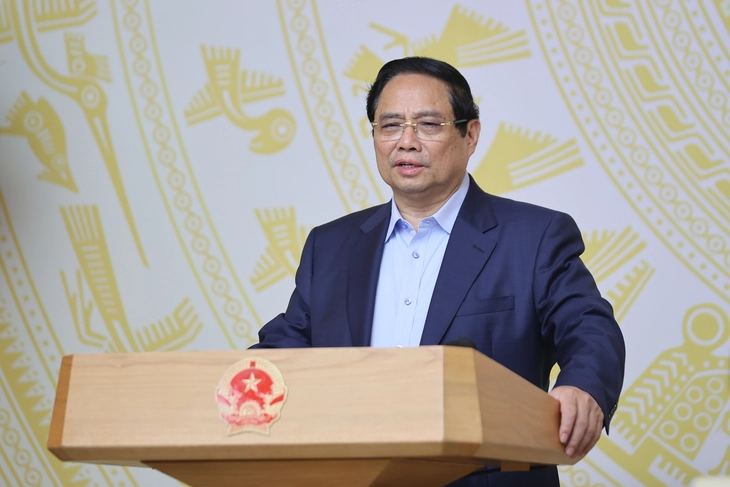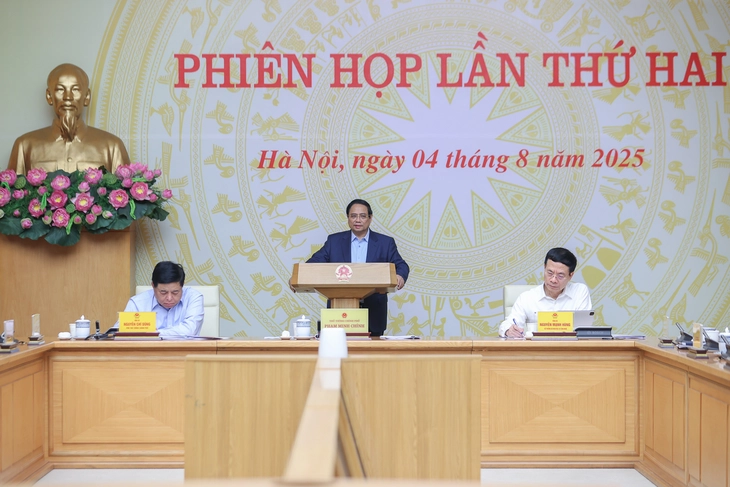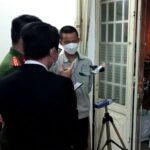Prime Minister Pham Minh Chinh emphasized the requirement that by 2027 at the latest, the design, manufacturing, and testing of certain essential semiconductor chips must be completed.
This conclusion was made by the Prime Minister during the second meeting of the National Steering Committee for the Development of the Semiconductor Industry, held online with connections to several provinces, cities, universities, academies, and high-tech zones.
Developing a Comprehensive, Synchronized, and Efficient Semiconductor Ecosystem
According to the Prime Minister, the development of the semiconductor industry has achieved some results. Awareness has improved, thinking has been renewed, actions have become more decisive, institutions have been enhanced, and positive outcomes have been seen, particularly in workforce training and infrastructure development. Cooperation has expanded, with key partners and businesses showing interest, while research institutes, universities, and localities have actively participated.
However, the Prime Minister noted that limitations and challenges remain, such as difficulties in mobilizing resources, especially capital; institutional obstacles; slow progress in certain tasks; insufficient breakthroughs; weak collaboration among the “three pillars” (government, businesses, and academia); and limited technology transfer.
Regarding future development directions, the Prime Minister stressed the goal of designing, manufacturing, and testing certain essential semiconductor chips by 2027 at the latest.
To achieve this goal, the head of the government proposed several solutions, urging ministries, localities, and relevant agencies to closely follow policies on semiconductor industry development and workforce training.
“To develop the semiconductor industry, the entire nation must act as a united force; progress toward the goal must be swift and bold; battles must be fought strongly, quickly, and with assured victory; results must be sustainable and long-lasting,” the Prime Minister emphasized.
Development must be comprehensive, synchronized, substantive, and efficient. Mechanisms and policies, especially preferential ones, must be improved to address bottlenecks in infrastructure, institutions, and human resources, with the spirit of streamlined regulations, seamless infrastructure, and intelligent execution.
The focus of preferential policies should shift from attracting investment to technology transfer, ensuring tight and effective coordination between the state, businesses, and academia, as well as between development, research, and production.
Equal development between public and private sectors must be promoted, along with public-private partnership mechanisms and expanded international cooperation. The semiconductor chip market should be competitive, healthy, fair, and market-driven.

Credit Program for Semiconductor Students to Be Introduced
To ensure effective implementation, the Prime Minister assigned relevant ministries to focus on specific tasks. These include continuing to develop human resources for the semiconductor industry, attracting foreign investment with priority given to advanced and high-value technologies, and integrating into global supply chains.
In 2025, the government will issue a decision on credit support for students, master’s candidates, and doctoral researchers in science, technology, engineering, and mathematics (STEM) fields.
International resources will be mobilized to support semiconductor industry development and training. Efforts will be made to promote Vietnam as a destination for the semiconductor industry, and Vietnamese diplomatic missions abroad will be directed to enhance international cooperation.
Training programs will be organized, and partnerships between the state, academia, and businesses will be strengthened to ensure high-quality workforce development.
Regulations on direct electricity trading will be revised to facilitate smoother and more competitive operations. Clean energy supply will be ensured, and efforts will be made to expedite the removal of Vietnam from the U.S. export control list. A logistics development strategy will also be issued.
Transport infrastructure will be improved to facilitate logistics and delivery services for semiconductor manufacturers. Plans will be developed to promote semiconductor applications in smart transportation and urban infrastructure.
Legal frameworks for strategic mineral resources will be reviewed, and special licensing mechanisms will be introduced for the extraction and deep processing of minerals serving the semiconductor industry.






